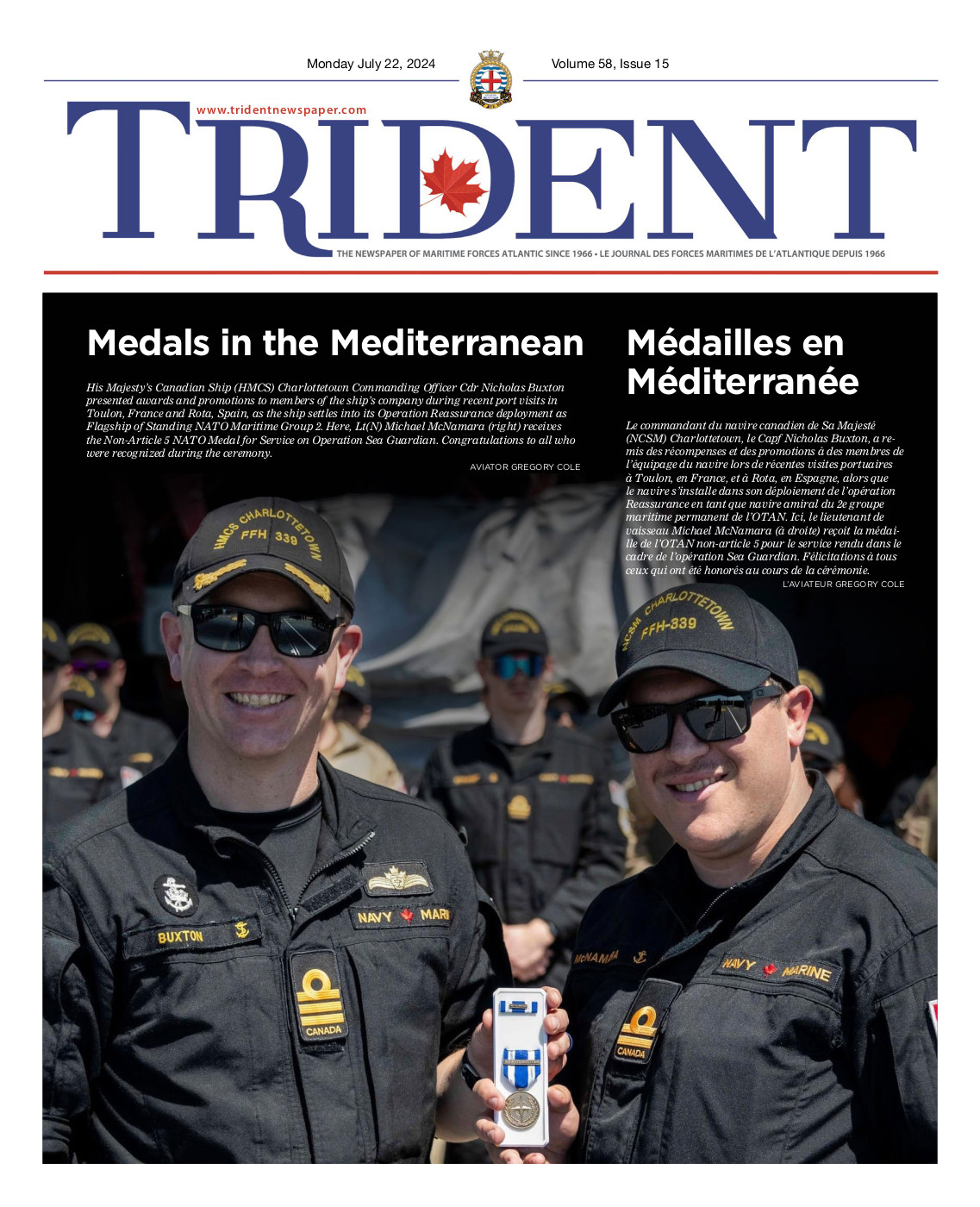
MONA GHIZ, MARLANT PA
Uncomfortable conversations are necessary ones, says HRP Superintendent
By Ryan Melanson,
Trident Staff
Halifax Regional Police Officers and CAF members have very different jobs, but when it comes to combating racial discrimination and making progress on diversity and equity issues, the two organizations can likely find similar avenues for success, says Superintendent Don MacLean, the officer in charge of HRP’s Patrol Division.
“We’ve learned that regardless of all our good intentions, having inclusivity in your organization is not something that just spontaneously occurs,” Supt. MacLean said, speaking to a MARLANT audience at the Piers Military Community Centre in Windsor Park on March 21.
“And we’ve done ourselves a great disservice by making these conversations so uncomfortable.”
Supt. MacLean was the guest speaker for an event marking the 2018 International Day for the Elimination of Racial Discrimination (IDERD). He talked about his path toward the high-ranking position he currently holds within HRP, the pressures and responsibilities that came with being Halifax’s first Diversity Officer and later its first African Nova Scotian Superintendent, and about the organization’s efforts to diversify its ranks and build trust with the public they serve, particularly those in marginalized communities.
He said a major push for change came following the 1991 riot-like incident that stemmed from issues around black men often being denied entry to downtown Halifax bars and clubs. A number of reviews and recommendations followed that event, one being that Halifax’s police force should be more representative of their local communities, and also make more effort to treat all members of the public with the same level of respect.
Some of the work towards those goals has included training to help officers recognize and correct their own biases, think critically, and understand privileges. Supt. MacLean, who also sits on the board of the Halifax Region Community Justice Society and Africville Heritage Trust, said issues of discrimination within HRP, whether internal or as part of policing the public, can’t be fixed without tackling the root of the problems. Adopting a ‘colour blind’ approach, or pretending race issues don’t exist, is not helpful, he added.
“We must see our different colours, and see our different backgrounds and privileges, if we want to achieve equity.”
The IDERD event was hosted by MARLANT Employment Equity Manager Dan Peppar and members of the Atlantic Region Defence Visible Minority Advisory Group (DVMAG), who are responsible for advising senior leaders regarding systemic racism in the CAF and issues that negatively impact visible minority members.
LS Jordan Tatton, military co-chair for DVMAG, said despite good-faith efforts aimed at diversity, inclusivity and ending racial discrimination, these problems still exist in the workplace for many CAF and DND members.
“Many times, even in the last year or two, I’ve had people of all ranks look at me and go ‘Really? We still have that in the Canadian Forces, in this day and age?’ Unfortunately, it still exists.”
This makes it all the more important, LS Tatton said, to encourage things like bystander intervention, and even for victims of discrimination to come forward and use their experiences to educate others. A hope is that members feel they’re able to speak out against discrimination or harmful behaviour without fear of reprisal.
DVMAG also has a secure DWAN email – +DVMAG MARLANT@MARLANTHQ@HALIFAX – where members are encouraged send in their experiences or situations they’ve witnessed regarding discrimination. This should be considered as something separate from any official policies and protocols dealing with harassment or other inappropriate behaviours, and won’t lead to repercussions for anyone involved, LS Tatton said.
“We’re not investigators, we’re not pursuing any of this stuff, this is simply so that when we report or give advice to command, we have the metrics to go along with that and we can back up our advice with real information and examples.”





